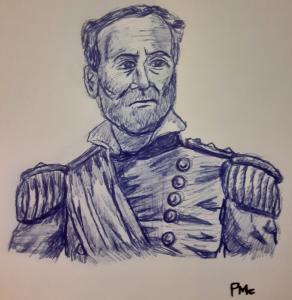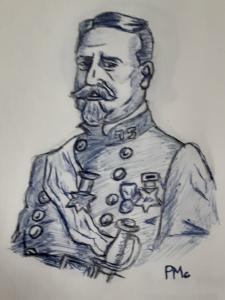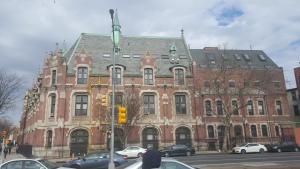![recordsofamerica25ameruoft_0038[2]](https://wp-media.patheos.com/blogs/sites/224/2014/06/recordsofamerica25ameruoft_00382-220x300.jpg) Rt. Rev. Mgr. Dennis J. Flynn, LL. D., was born near Louisville, Ky., Sept. 17, 1856, and, having made his preliminary studies in the parochial schools and St. Xavier’s Institute of that city, he went to Mt. St. Mary’s College, Emmitsburg, Md. The college course completed, he studied theology in the seminary department of the same institution and he was ordained for the
Rt. Rev. Mgr. Dennis J. Flynn, LL. D., was born near Louisville, Ky., Sept. 17, 1856, and, having made his preliminary studies in the parochial schools and St. Xavier’s Institute of that city, he went to Mt. St. Mary’s College, Emmitsburg, Md. The college course completed, he studied theology in the seminary department of the same institution and he was ordained for the
diocese of Wilmington, by Rt. Rev. Thomas A. Becker, in St. Peter’s Cathedral of that diocese, June 23, 1883. As assistant to the venerable Father Reilly, pastor of St. Mary’s, by his zealous labors and magnetic eloquence he soon became known far and wide. A few years afterwards Father Reilly died and Father Flynn was made pastor of Galena, Md., whence he was transferred in 1894 to Wilmington, to succeed Rev. George Bradford as pastor of St. Patrick’s.
He took a great interest in the work of Catholic education and soon erected a handsome and commodious parochial school. Many other improvements having been made in the parish, his intense desire to devote himself exclusively to teaching brought him back to his Alma Mater, where, with the permission of his Bishop, he became professor in 1898-99, then Vice-President and Treasurer, and, finally, in 1905, President. His activity was untiring and during- his administration were begun and completed, under the supervision of Rev. Father Bradley, Vice President and Treasurer, the fine new seminary and the magnificent new church. The greatest event of his term of office was the celebration of the Centenary of the College in Oct., 1908,
when His Eminence, Cardinal Gibbons, His Excellency, Archbishop Falconio, Apostolic Delegate, many other members of the Hierarchy, as well as priests and students from many states took part in the solemn festivities of the memorable occasion. In recognition of his great services to religion and education the Holy Father in 1910 made him a Roman Prelate with the title of Monsignor. His strenuous labors, however, both while on the mission and also while at college, had undermined a constitution naturally robust, and after some time spent in search of health he returned to the college and ended there his useful life July 7, 1911. Many Prelates including Cardinal Gibbons attended his burial on the mountain side, where he had asked to be laid, with the great and good men that in the past had directed the destinies of the mountain.
His manliness of character made him loathe whatever was not noble and elevating. While insisting on his rights he did not forget the rights of others, nor his duties to all. His courage, kindness, cheerfulness, industry and many other gifts formed an excellent basis on which grace erected an imposing spiritual building. With solid piety as priest and pastor he worked wonders
with such ease and simplicity that what he did seemed ordinary. In intellectual equipment, in sound judgment by which he measured and ruled men, as well as in executive ability he had few equals. When called upon, whatever the occasion demanded, he never failed to come up to, if not to surpass, expectation. As man and priest, as professor and President, he left a splendid record of deeds well done.
Records of the American Catholic Historical Society of Philadelphia, Vol. XXIV, No. 1 (March 1914): 31-32.











